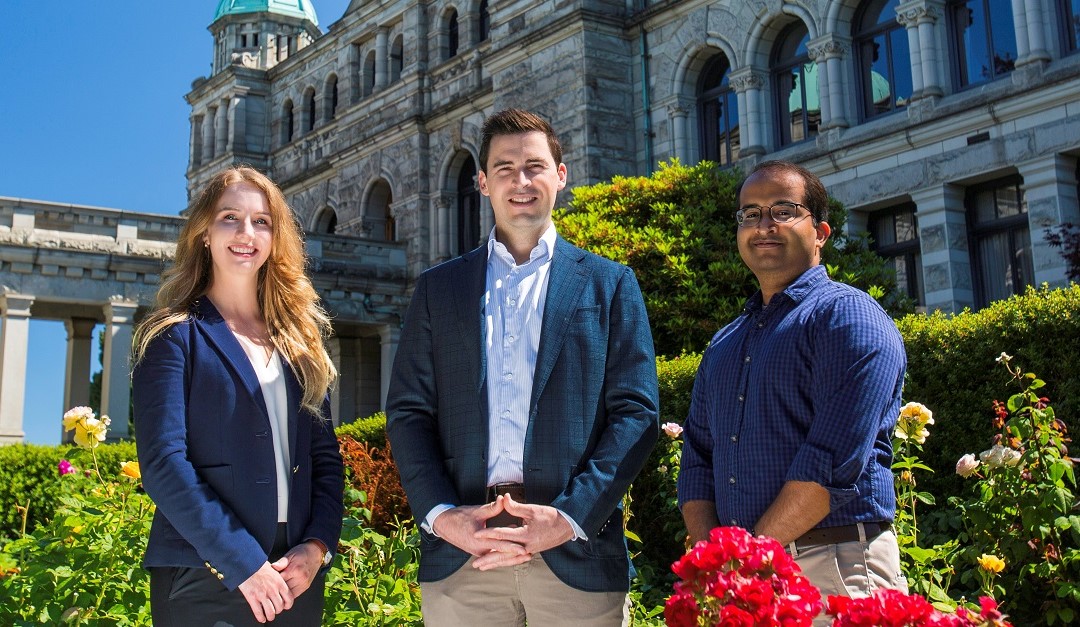By Rae Scott.
Sustainability has become more than a buzzword in recent years; we cannot maintain our quality of life, the diversity of our ecosystems, or preserve our natural resources for future generations unless we address it now.
The need for sustainable practices is growing urgently and overlapping across industries, and this leaves us with the question, “what role does the government have in driving sustainability?”
Elanna Eagle, Director at the Ministry of Citizens’ Services, MBA ’22, Unni Damodaran, Planning and Risk Advisor for B.C Pension Corp., MBA ’19, and JP Fournier, Director with the Province of B.C’s Office of the Chief Information Officer, MBA ’19, know that government is crucial for sustainability.
Many of the challenges that Canada, and the world, are facing right now require diverse perspectives from every sector. Our government has a responsibility to develop and integrate the sustainable practices that these complex problems require. As Unni says, “there is no single solution to any problem.”
“We look to our government to create jobs, help businesses succeed, provide the programs and services that a growing population depends on and look after our natural resources,” JP says. Nowhere is sustainability more important than in the public sector, and it fits into every single facet of government.
“The essence of sustainability is for society’s present behaviour to not compromise the wellbeing of future generations,” explains Elanna. And it isn’t a stand-alone responsibility; driving sustainability rests on all of us. “For the public sector,” she continues, “this may mean setting precedence for practices that support the U.N. Sustainable Development Goals, creating a work environment that attracts and retains employees and, ultimately, contributing to a healthier British Columbia.”
As Unni puts it, the public sector “can drive the human, social and economic change that will strengthen us.”
So how does sustainability factor into the future of government?
Government processes are essential for sustainability in many ways, from developing emissions-related policies, mandates and action plans, to consulting with the public and local communities to understand needs and co-develop solutions.
“Growth can be achieved while focusing on sustainability, which is a great way to make our future better,” Unni says. Unni adds that “we are at a point where every choice that a corporation or the government makes needs to be driven by sustainability.”
JP was driven to work in the public sector for similar reasons, stating that it allows him to “work on some of the biggest problems in society, from improving the stewardship of our natural resources to addressing our infrastructure gap.”
Elanna provides examples of the roles the provincial and Canadian government is uniquely positioned to fill in the the continued drive towards a more sustainable world:
- Providing incentives for citizens and organizations to make more sustainable choices
- Giving recognition for local leading sustainable practices
- Investing in impact investing funds
- Integrating corporate social responsibility into sourcing and contracting
- Investing time, resources and funding into sustainable operations throughout value chains
- Considering environmental and social impacts of government facilities
- Encouraging best practices for reporting and disclosure
- Ensuring employees are supported in their unique needs and career aspirations
To leave a better world for future generations, we all have a role to play. Elanna sums it up nicely: “Encouraging sustainability does not rest solely on any one sector, but on all of society.”


